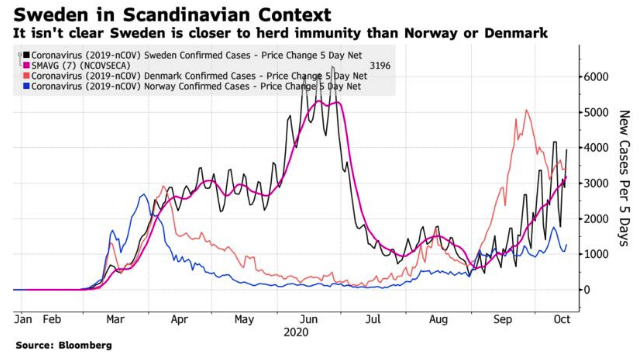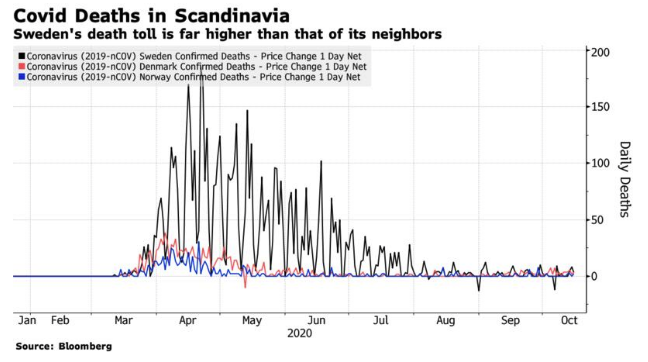Last weekend, I hit everyone with my latest essay on the morals of the coronavirus, this time on the issue of whether it is morally justified to aim for herd immunity via infections, using the system of “focused protection” advocated by a group of epidemiologists in the “Great Barrington Declaration.” It provoked more than the usual feedback, which isn’t surprising. After all, this personally affects all of us. So here are some of the main points of discussion that have emerged.
Morals
On the ethics of the issue, the longest and most detailed debate took place here on LinkedIn. There is another here. I was sent one fascinating contribution from a Catholic priest arguing passionately against lockdowns (as far as I am aware this isn’t the Church’s official doctrine). I was also urged to include the ideas of Emmanuel Levinas, a 20th century French-Lithuanian philosopher who based his ethics in “the vulnerability of the other,” to whom we owe the greatest responsibility. I was also chided for missing out philosophers of virtue, starting with Aristotle.
A group of epidemiologists published this riposte to the Great Barrington Declaration in the Washington Post, stating flatly that the approach their colleagues are suggesting could lead to millions of deaths. There is also plenty of commentary on the backing for the declaration from right-wing libertarian groups, and for the plethora of joke signatures that have been added to their online petition. You can read this great anthology by Brooke Sample for a round-up of the commentary Bloomberg Opinion has published on the dilemma.
I think it’s for everyone to immerse themselves in the discussion. It isn’t clear to me who’s right. But to be clear, there isn’t a good option. We are choosing between a number of unpalatable possibilities, and a number of alarming risks. It would be nice to magic up a vaccine, but that is easier said than done.
Sweden
One place that comes up again and again when discussing herd immunity is Sweden, the country that has effectively followed the policy the Great Barrington academics are proposing. As the comments under my essay from last week make clear, Sweden’s record can be viewed to reflect whatever you want it to. Many evidently believe that the Swedish experiment in herd immunity has already been proved right. It is way too soon to say that.
Much of the rhetoric favoring Sweden rests on comparing its record with the U.S. The two countries have had much the same death rate, even though Sweden has never closed its schools. Evidently this makes the U.S. look bad, but it’s not clear that it shows Sweden has done something the rest of the world should want to emulate. Compare Sweden to its Scandinavian neighbors, and its record doesn’t look good. This is the record on cases (showing rolling five-day totals):

To be clear: Sweden has a slightly larger population than its neighbors, so I multiplied the Norwegian and Danish numbers to give the death totals they would have suffered had their population been the same size. Obviously, Sweden had far more infections during the summer. Denmark then suffered a growing outbreak in September — but the growth in Swedish positive tests in the last few weeks must call into question whether the pain it went through earlier this year has given Sweden any great advantage.
If we look instead at daily death tolls (again multiplying the Danish and Norwegian totals so they are comparable), the picture is brutally clear:









